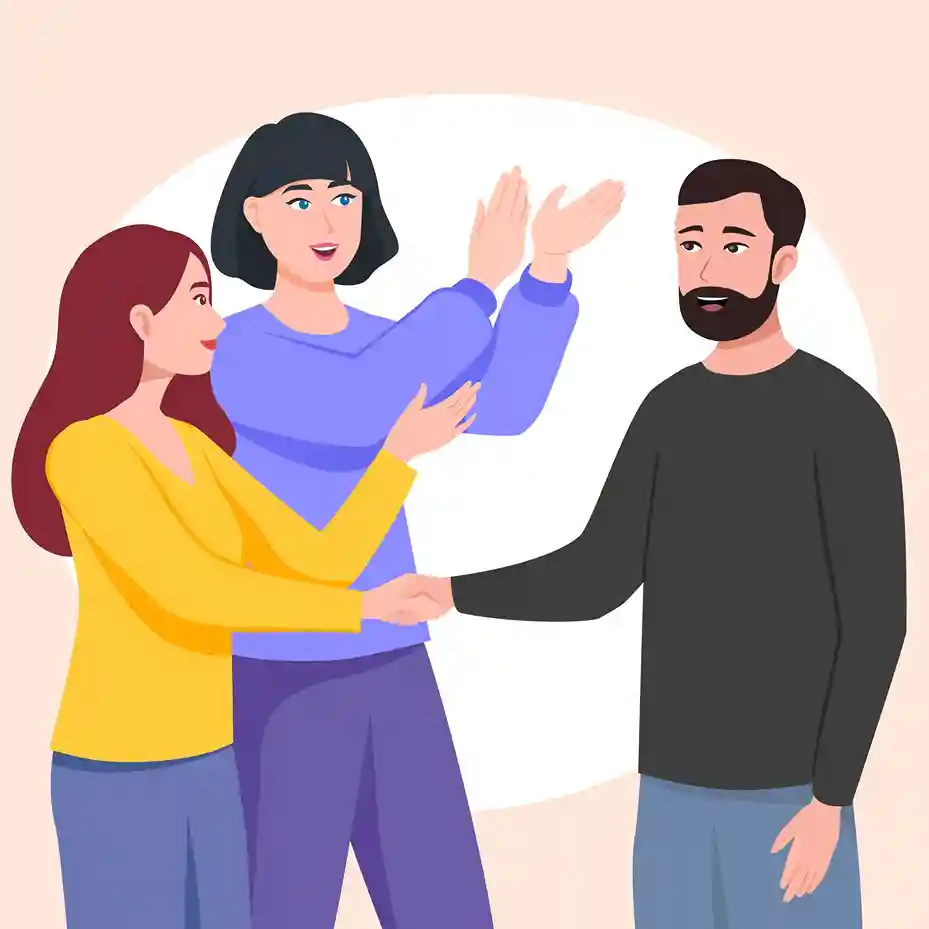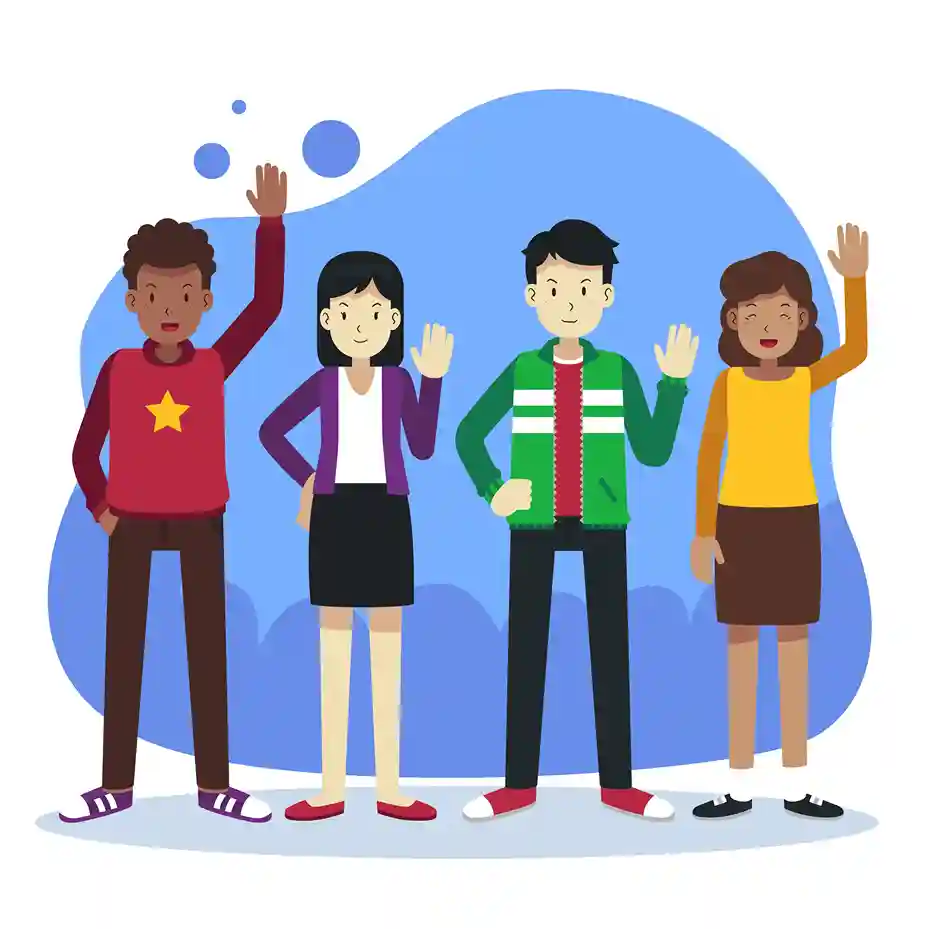In today’s fast world it is very easy to get caught in the emotional whirlwind. Whether at work (a never-ending stream of emails from ‘that guy’—or’ an unexpected inconvenience during your day), our instinctive reaction is our go-to. However, there is a better approach: don’t react; respond.
The small but powerful mind shift this entails can bolster your personal and professional life in ways you hadn’t thought possible before, empowering you to lead with a clear intention and not emotion. In this article, we’ll explore what it means to respond, not react, the implications of that, and 7 actionable strategies of how to change so you can make a response rather than only react. Living by this philosophy will make you more resilient, more mindful, and better at making decisions.
What Does “Don’t React, Respond” Mean?
The principle “don’t react, respond” is really about thoughtful action versus an impulsive reaction. Reaction is immediate, typically emotional, and most often unthinking. It’s a knee-jerk response to stress or frustration. Instead, response is deliberate and mindful. It’s about putting yourself on hold and assessing the situation, imagining the consequences with the most serious ones present, and picking the best option.
Consider, for instance, someone cuts you off in traffic. What a reaction may be could be honking quite angrily or shouting. There is a response; you take a deep breath, know that the incident is not worth your peace, and drive on with calm. Though simple, that practice can be life-changing when consistently applied.
Revealing the Science behind Reacting vs. Responding
To a neurological degree, the reactions originate from the brain’s emotion center, the amygdala, which triggers what is known as the ‘fight or flight‘ response. This is the kind of thing we need to survive, but it can also cause us to overreact in nonthreatening situations.
However, responses activate the prefrontal cortex, that part of the brain that is related to rational thought and making decisions. When you train your brain to respond instead of react, you begin the practice of pausing things, processing information, and acting with clearer thinking.
Why You Should “Don’t React, Respond”
- Improved Relationships: Thoughtful responses keep arguments from happening and help improve communication.
- Reduced Stress: Helping you cope with stress levels, responding helps you to maintain emotional balance.
- Better Decision-Making: When you respond, there’s a much higher likelihood that the choices you make align with your long-term goals.
- Increased Self-Awareness: By putting pauses in between your stimulus and your action, you have a chance to reflect on your emotions and your triggers.
- Enhanced Productivity: By responding thoughtfully, no energy is wasted on whatever would have been unproductive reactions.

7 Powerful Ways to “Don’t React, Respond”
1. Practice Mindfulness
We learn how to respond and not react by learning how to be mindful. By being present and aware, you can see your thoughts and feelings and not get controlled by them.
How to Start:
- Do 10 minutes of mindfulness meditation a day.
- When you are stressed, use some grounding types of techniques like focusing on your breath.
2. Pause Before Acting
The power of the pause cannot be overstated. Whenever you find yourself in a triggering situation, first pause, breathe, and think about what to do.
Tips to Implement:
- Respond to someone only after you count to five.
- Slowly take a few deep breaths to calm your nervous system.
3. Identify Your Triggers
To master the art of response, you need to understand what causes you to flare up. Criticism, unexpected changes, or feeling undervalued can trigger off common tensions.
Action Steps:
- Write down circumstances when you do something impulsively.
- Think about these patterns and create strategies to deal with these triggers.
4. Practice Empathy
Often responding means thinking about others’ perspectives. Empathy steers you away from a reactive behavior by putting you in the shoes of someone else.
Ways to Cultivate Empathy:
- Make active listening during conversation.
- Don’t jump to conclusions; get to understand first before you decide.
5. Reframe Negative Thoughts
How you handle challenges is determined partly by your mindset. A reframing allows you to change the way you see something in a positive or neutral light.
Examples:
- Instead of saying, ‘This is so unfair,’ replace it with ‘What is there I can learn from this?’
- Instead of saying, “I can’t believe they said that,” say, “They may be having a rough day.”
6. Learn how to develop emotional intelligence (EQ)
EQ is the art of awareness, understanding, and expression of your own and other people’s feelings. People with high EQ are more likely to try to react calmly in pressure situations.
How to Boost EQ:
- Label your emotions for practice and self-awareness.
- Learn how to develop active listening and conflict resolution as social skills.
7. Seek Support When Needed
In some cases, we need external guidance when it comes to managing reactions. Talking to someone is always important, whether it’s a mentor, a therapist, or someone trusted.
Ideas for Support:
- Start joining a mindfulness or self-improvement group.
- You can join therapy or coaching sessions in emotional regulation.
Practical Applications of “Don’t React, Respond”
At Work
Often work environments put us into situations that ask us to react instead of respond. One example is if, when you get critical feedback from, for example, a supervisor, you become defensive. Don’t automatically react in the moment; instead, take a bit of time to think through the feedback, whether it’s truly valid, and respond well.
Learning to “don’t react, respond” in work situations allows better collaboration, better problem solving, and a positive reputation for handling stress gracefully.
In Personal Relationships
Thoughtful communication builds relationships. Emotions can be easily triggered by a partner’s comment or action, and such a reaction escalates conflict. Empathy in response will create trust and strengthen the connection with those you care about most.
Example: Reacting to your partner forgetting an important date, however, could be immediate anger or blaming your partner. Calmly expressing your feelings and then working together to prevent future disappointments is responding.
During Unexpected Challenges
Life is unpredictable. Representative of your mindset is how you deal with flat tires or unexpected bills. This can mean reacting with frustration or panic or responding with staying calm and deciding what to do and then doing it.
Choosing to Respond: Long-Term Benefits
As you begin to adopt the “don’t react, respond” philosophy, the benefits span much further than just an immediate situation. And over time, you will see a tremendous difference in how you react to adversity, interact with people, and deal with life’s obstacles. With your emotions in control, you will become more mentally healthy and have a better life in general.
If you choose to respond to something, you’re also setting a good example for others to follow. Your behavior influences your kids, colleagues, or friends to take up this powerful mindset.
When you incorporate the concept ‘don’t react, respond’ in your life, you’ll open the door for the power of intentionality and control. This isn’t just about getting through tough moments—this is a mental shift for how to live life with grace and empathy with a sprinkle of resilience. Begin it now and see your world change.
Frequently Asked Questions (FAQs)
What is the difference between reacting and responding?
Reacting is an immediate emotional response to a situation, whereas responding is a careful consideration of a thing and deliberate actions.
What can I do to make me just respond instead of react?
First and foremost, get into the habit of practicing mindfulness, pausing before you do something, and recognizing your triggers. What you will do over time is that these habits will start to help you respond more effectively.
So why is it important to “don’t react, respond”?
By responding, you not only act with different clarity and intention but you also improve relationships, decrease stress, and make better decisions.
Is it possible for everyone to learn to respond, not react?
Sure, anyone can learn the skill to respond thoughtfully with consistent practice and self-awareness.
How do I calm down quickly before I speak?
Try deep breathing when you start to feel that anxiety coming on, or settle yourself by counting to five or any other grounding technique, like focusing on your senses.
How does this principle help in improving emotional intelligence?
“Don’t react, respond” encourages self-awareness and empathy and so enhances emotional regulation and interpersonal skills—both components of EQ.
What could be real-life examples of responding instead of reacting?
1. Being criticized by people unexpectedly & calmly asking for clarification.
2. Responding to a late delivery instead of lashing out at customer support by simply dealing with it.
Click Here for Reading More:
Cooling the Flames of Anger: 9 Proven Strategies for Inner Peace…

